We’ve found a large number of phishing scams this week, including ones relating to McDonald’s, USPS, MetaMask, and WeTransfer. Would you have been able to spot all the scams?
Phishing Texts/Emails
Impersonating trusted brands, scammers contact you using excuses like bogus security alerts or fake notifications via text message or email — always with the goal of getting you to click on phishing links.
They try to prompt you into completing various tasks after clicking on the links. These links are phishing links designed to collect any information you enter. Scammers can use your information for their own good, for example, to steal your identity or make payments using your credit card information.
In most cases, they promise you free gifts if you’re willing to take an online survey:
McDonald’s Survey Scam
We’ve seen lots of fake text messages disguised as McDonald’s surveys. Scammers falsely claim that you can get free McDonald’s meals for a month (quite tempting) via the attached link:
- Hey Bryant, Mc-Customer! You’ve been selected to receive free meals for a month as a special thank you for being a valued customer. <URL>
The link will lead you to a fake McDonald’s survey page:

After you complete the questionnaire, you will be asked to provide further personal details for the delivery of a gift (e.g. PS5 or iPad Pro). These credentials will end up in scammers’ hands. Don’t fall for it!
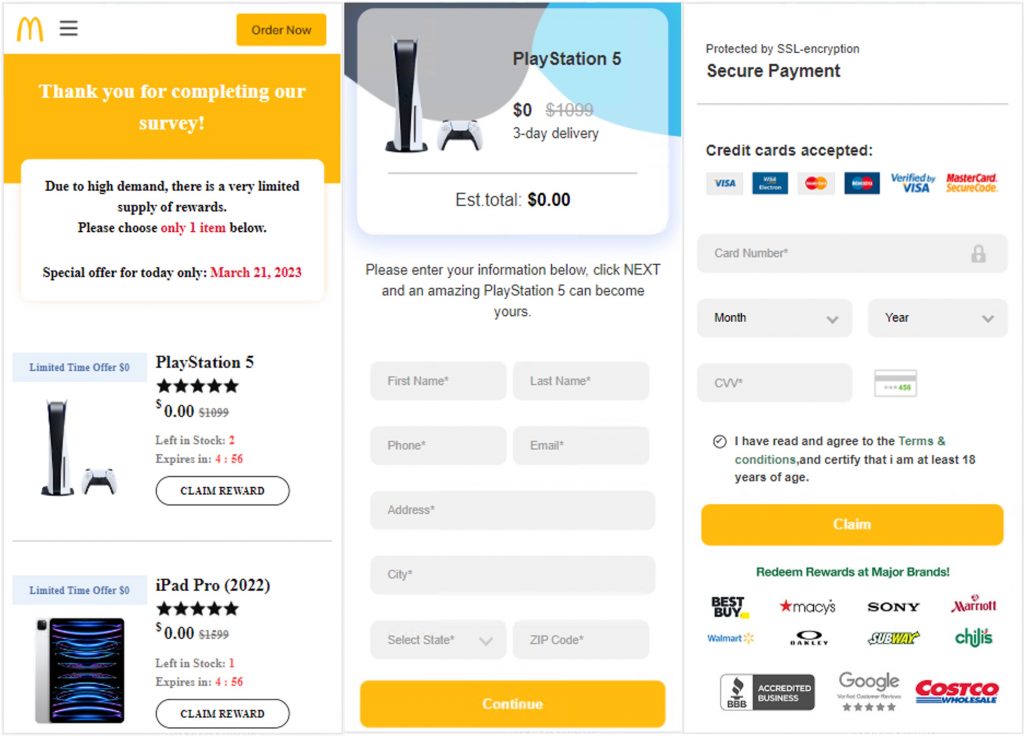
Stop Phishing Scams With ScamCheck
The best way to prevent phishing scams is to NEVER click on links or attachments from unknown sources. You can try Trend Micro ScamCheck, a browser extension and mobile app for detecting scams, phishing attacks, malware, and dangerous links, and surf the web with confidence! (Plus, it’s FREE!).
After you’ve pinned the ScamCheck extension, it will block dangerous sites automatically! (Available on Safari, Google Chrome, and Microsoft Edge.)
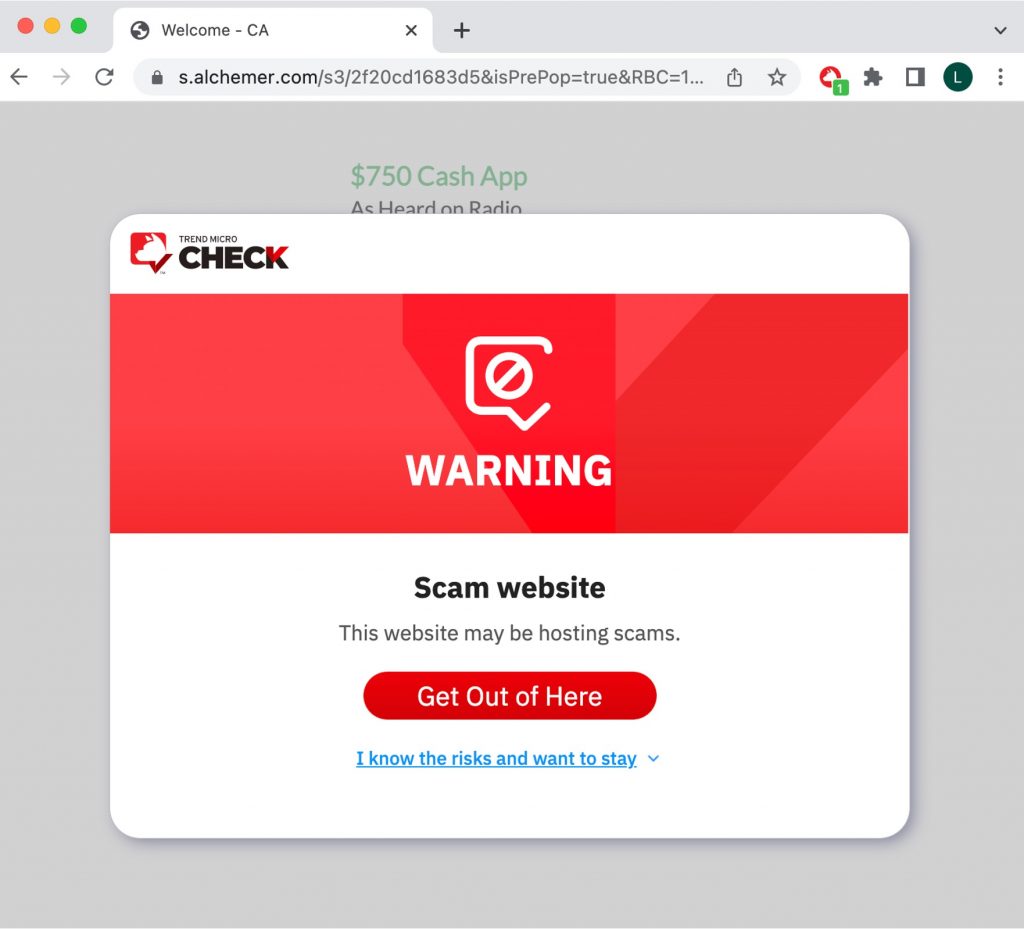
You can also download the ScamCheck mobile app for 24/7 automatic scam and spam detection and filtering. (Available for Android and iOS).
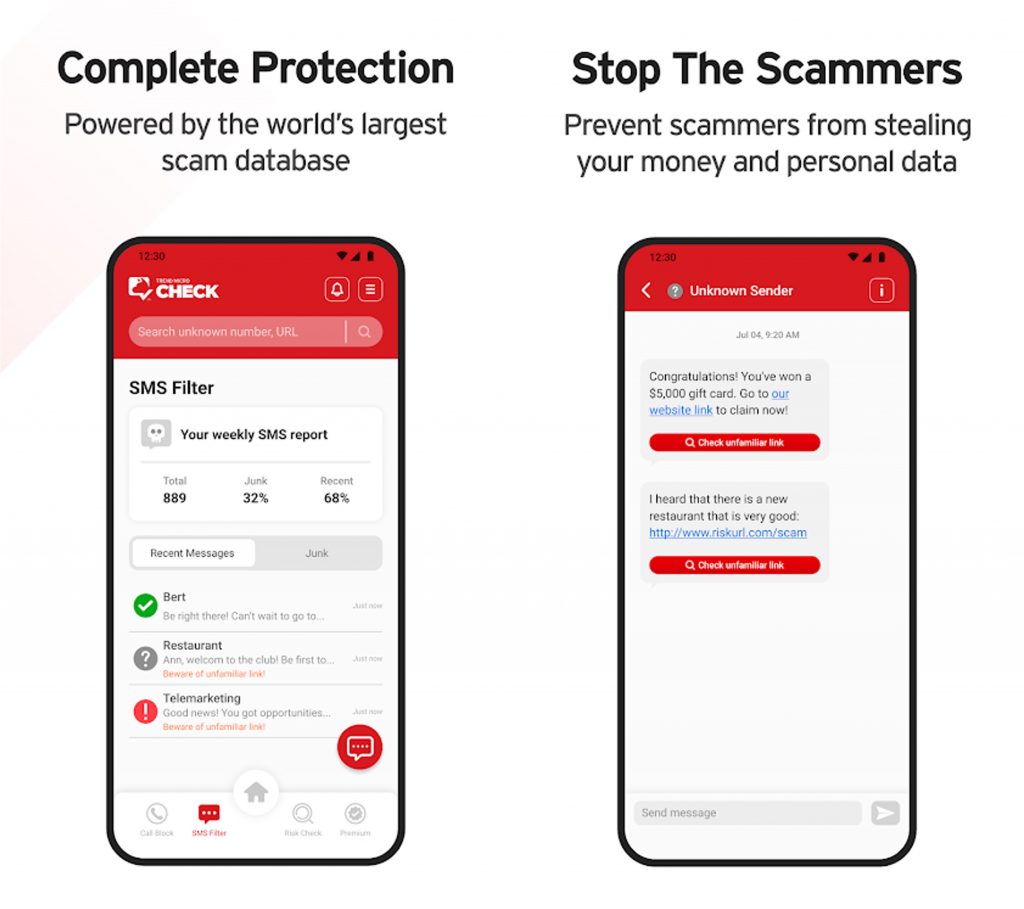
Check out this page for more information on ScamCheck.
USPS Shipping Scam
We’ve reported on fake shipping notifications from delivery companies such as DHL and FedEx many times. This week, there has been an exploding number of fake USPS texts circulating. Scammers try to trick you into thinking that you need to use the attached link to “resolve some issues” with your package delivery:
- [POST] Please resolve the issue with your recent order to prevent return to sender address: <URL>
The link will take you to a fake USPS tracking page (there is even a fake tracking number):
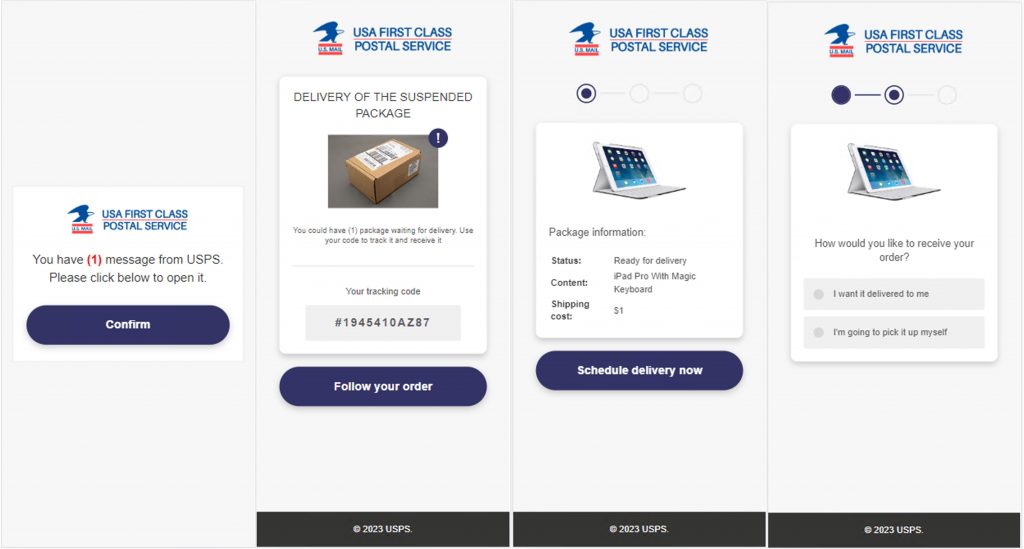
If you proceed, you could eventually expose your credit card information. Stay alert!
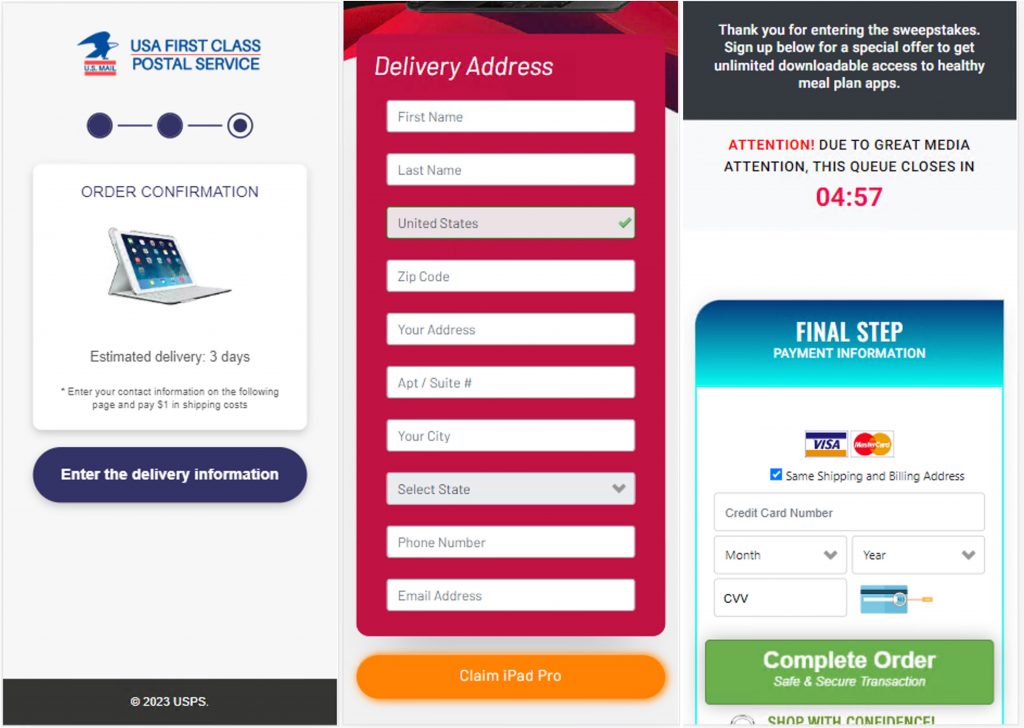
Besides text messages, scammers also reach out to would-be victims via email (of course, while misusing the name of trusted brands):
MetaMask Phishing Email
Fake MetaMask emails are also a regular reoccurrence. Posing as MetaMask, scammers send you fake security alert emails and prompt you to verify your crypto wallet via the embedded button:
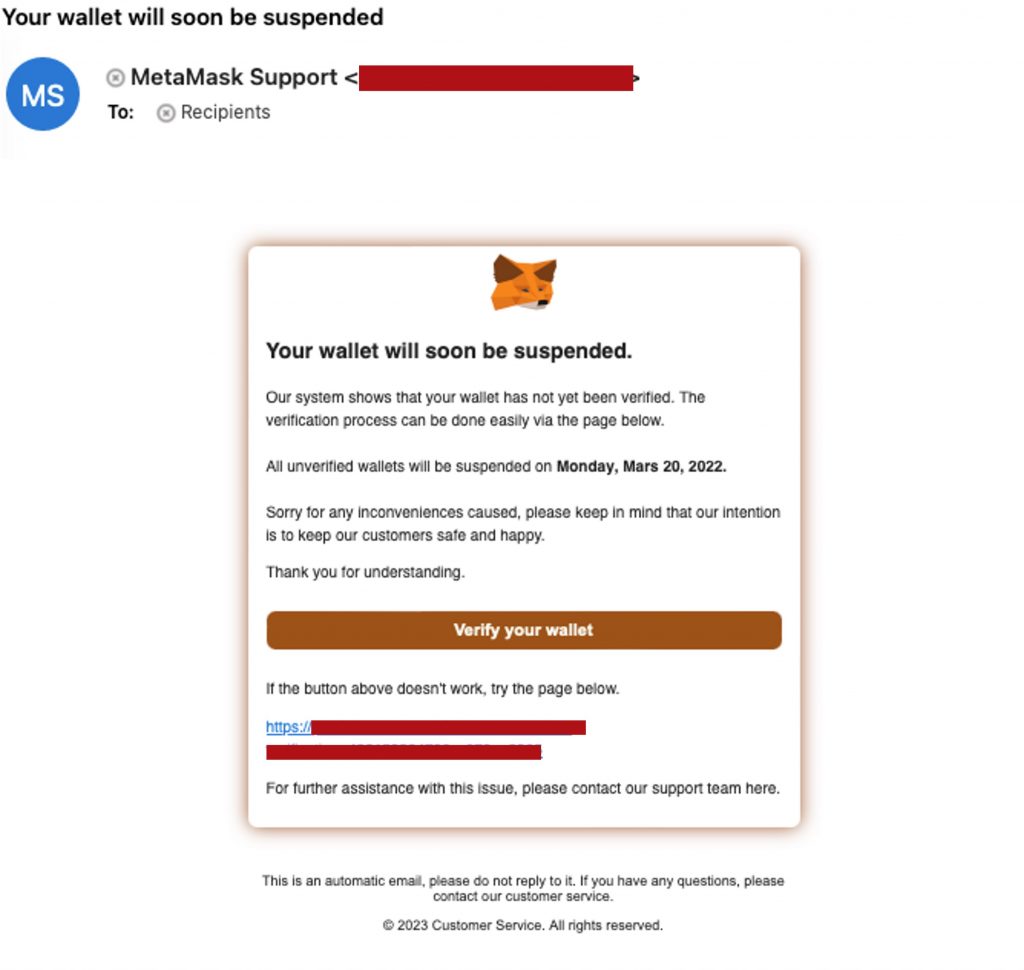
Again, the button will take you to a phishing page (in this case, it will be a fake MetaMask login page). If you ever reveal your login credentials and seed phrase, scammers can gain access to your MetaMask wallet and steal all your crypto. Don’t let them!
WeTransfer Phishing Email
We’ve also found computer file transfer service company WeTransfer exploited in phishing attempts. Scammers send fake notifications via email and to try to get you to click on the button for more details:
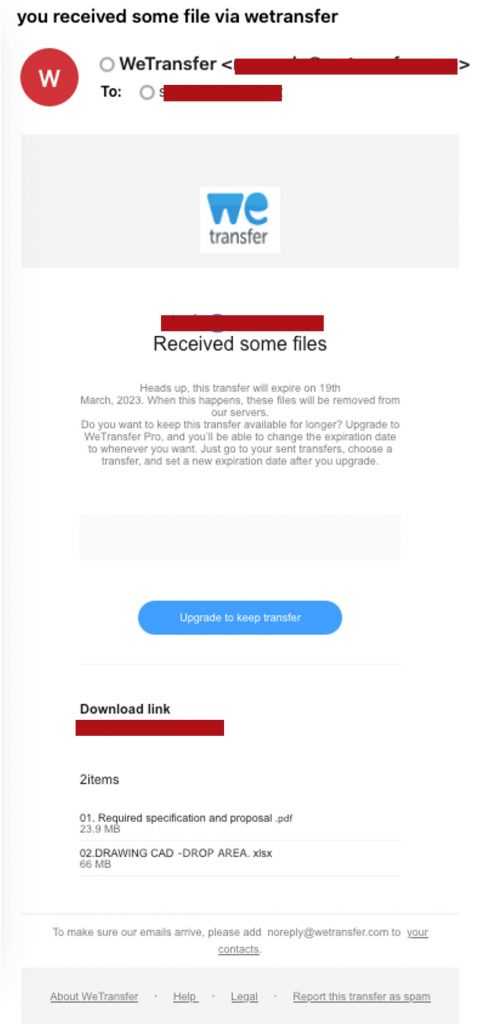
The button will take you to a fake login page, and in the end, you could end up having your login credentials stolen. Be careful!
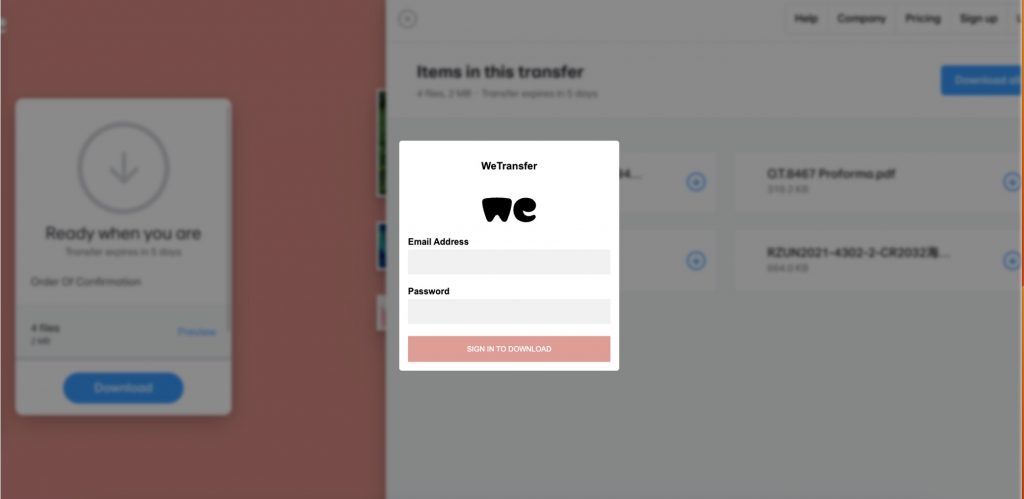
Tips to Stay Safe from Scams
- Free gifts are always a major red flag!
- Double-check the sender’s mobile number/email address.
- Only use official websites/applications.
- Change your password as soon as possible if you’ve already clicked on a suspicious link. Consider using our free online Password Generator to create strong, tough-to-hack passwords.
- Finally, add an extra layer of protection to your devices with Trend Micro Maximum Security. Its Web Threat Protection, Ransomware Protection, Anti-phishing, and Anti-spam Protection will help you combat scams and cyberattacks. Click the button below to give it a try.
If you’ve found this article an interesting and/or helpful read, please SHARE it with friends and family to help keep the online community secure and protected. Also, please consider leaving a comment or LIKE below.
